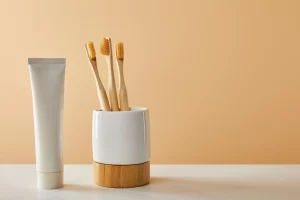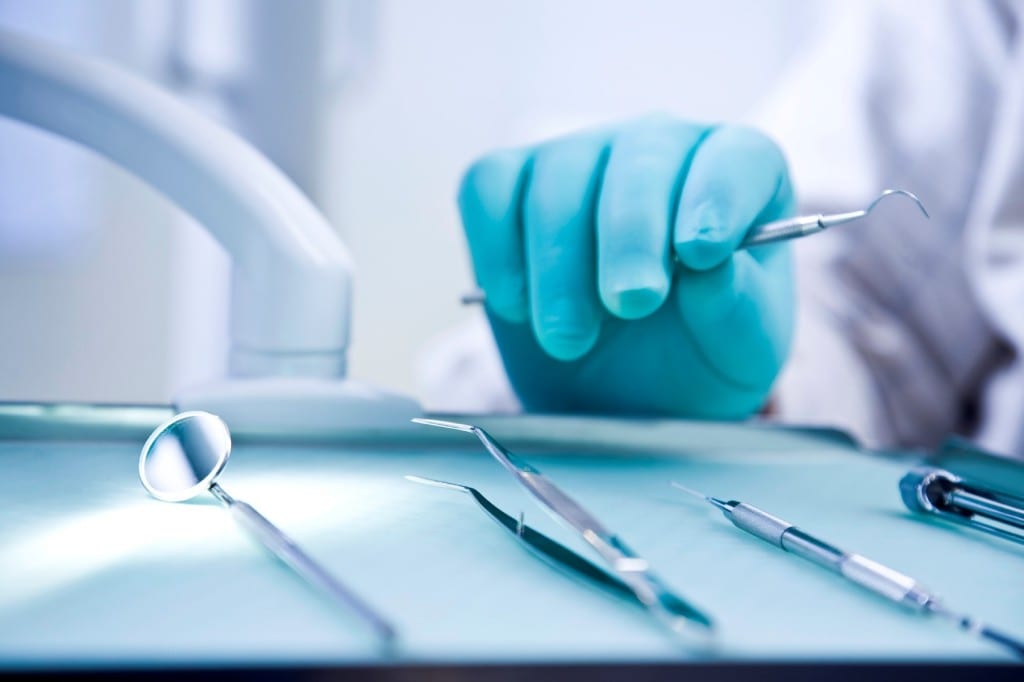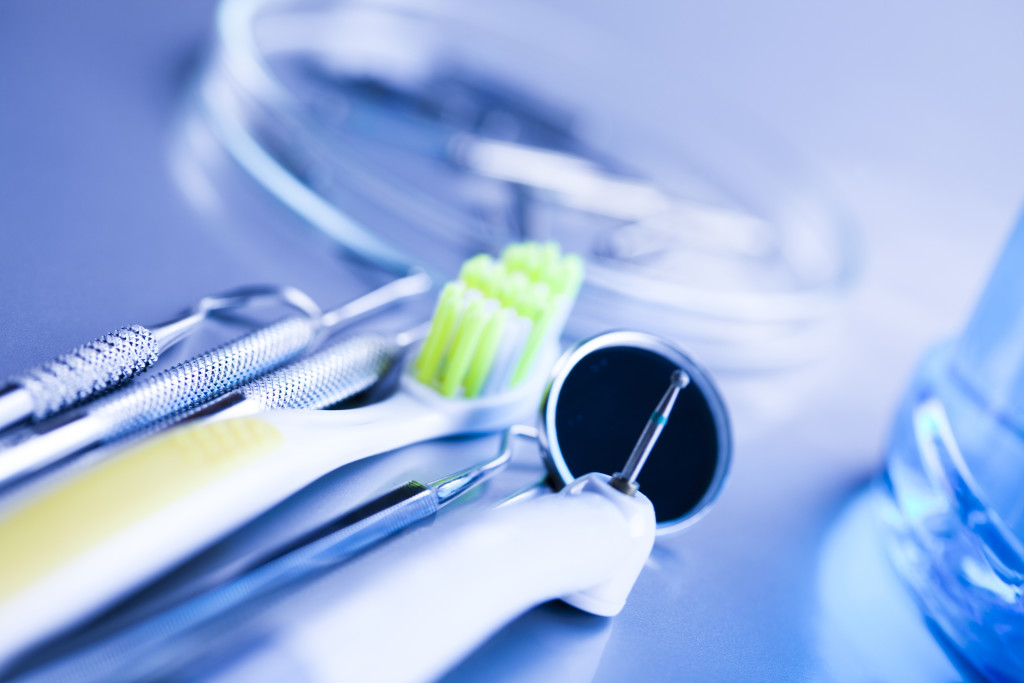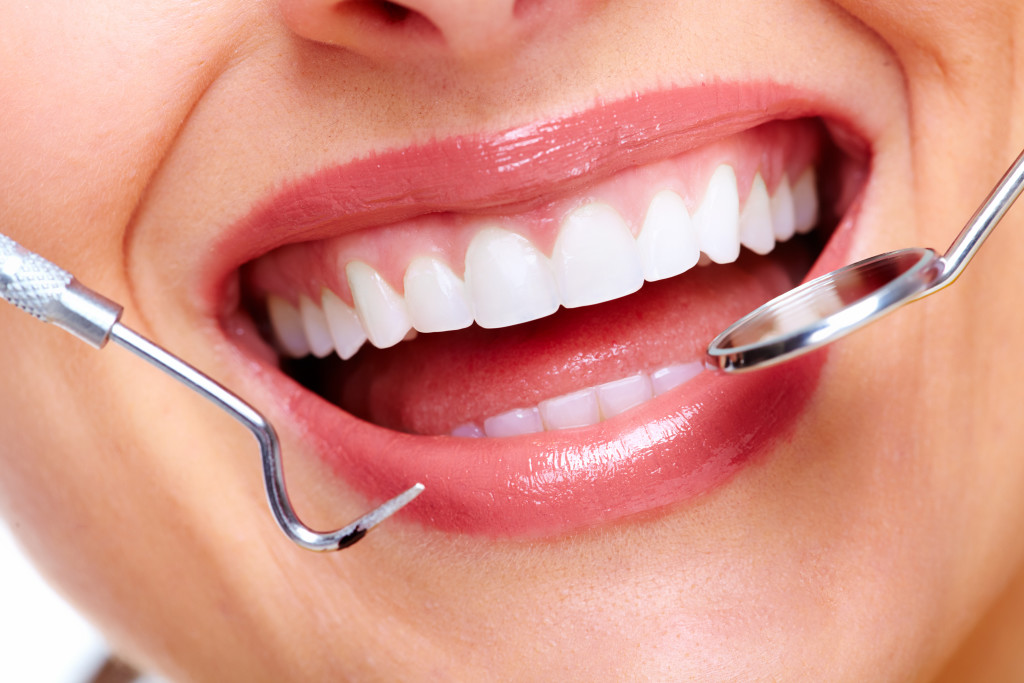 Oral hygiene is the first step to good health. You often don’t even realize how important it is until a problem arises, so you should always remember that preventive methods are the best help on the way to great health.
Oral hygiene is the first step to good health. You often don’t even realize how important it is until a problem arises, so you should always remember that preventive methods are the best help on the way to great health.
7 habits you should follow to have healthy teeth
Taking care of the health of your teeth is not a new phenomenon. From time immemorial, we find evidence of primitive dental care and common problems associated with it, such as toothache and bad breath (halitosis).
1. Rinsing the oral cavity
Make it a habit to rinse your mouth with water after every meal and after every snack. Thus, you can remove food residues in hard-to-reach places, freshen your breath and slow down the development of bacteria.
It is also important to use special rinses for the oral cavity. They remove plaque, disinfect the surface of the teeth and clean them. It’s also important to consider that these rinses have special additives to strengthen sensitive teeth, relieve gum inflammation and eliminate bad breath.
2. Thoroughly clean between the teeth
Very often, tooth enamel is destroyed in hard-to-reach places between the teeth, where a toothbrush usually cannot reach. And it is not surprising. The remains of food clinging to the teeth react with bacteria, forming a dangerous acid and later, unfortunately, destroy the tooth enamel, opening access to the middle of the tooth, i.e. the dentin.
To avoid these problems, it is necessary to thoroughly clean the entire dentition, paying special attention to the area between the teeth. For this, you will need dental floss, dental floss with a holder, or an interdental brush.
3. Control of brushing time
When you are late for work in the morning or come home very tired in the evening, there is a huge desire to brush your teeth as soon as possible. But the effectiveness and benefit of such cleaning will be meager. It takes 3 to 5 minutes to good clean your teeth from all sides because otherwise plaque and leftover food will remain in your mouth.
So, before you start brushing your teeth, you should turn on the timer or a song of the appropriate duration on your phone and brush until the allotted time is up.
4. Alternate kinds of toothpaste
To have a snow-white smile, many people use tooth-whitening pastes every day. However, it is worth noting that they are quite harmful to the teeth, as they contain abrasive particles and other aggressive ingredients that soften and weaken the tooth enamel, making the teeth very sensitive.
To maintain a beautiful smile and care for the health of teeth, it is recommended to various kinds of toothpaste. For example, on the shelf in the bathroom, you can always keep a cleaning paste, a soothing gel for the gums, whitening paste, and alternate them every day, using a different product each time.
5. Change your toothbrush regularly
Remember, changing your toothbrush every 3 months is not a marketing ploy. 3 months is the period during which the bristles of the toothbrush are deformed and, accordingly, begin to clean the surface of the teeth with less efficiency, each time irritating the gums more and more.
In addition, during this period, dirt accumulates between the bristles on the base of even a very high-quality brush and bacteria begin to develop. In order not to forget to change the brush on time, use a reminder. You can put a mark in the calendar, or simply change the toothbrush at the beginning of each season.
6. Drink through a straw
Some drinks can be harmful not only to the stomach but also to the teeth. For example, sodas contain a lot of sugar, which can collect in the spaces between the teeth. Coffee can harm tooth enamel and stain teeth. Fruit juices provoke demineralization of tooth enamel due to high acidity.
To enjoy your drink without harming your teeth, always use a straw whenever possible and rinse your mouth with water afterward.
7. Avoid temperature changes
Sudden changes in temperature create microcracks in the tooth enamel, which are invisible at first, but eventually turn yellow and cause tooth sensitivity. To preserve tooth enamel, you should avoid sudden changes in temperature.
Picture Credit: VistaCreate






